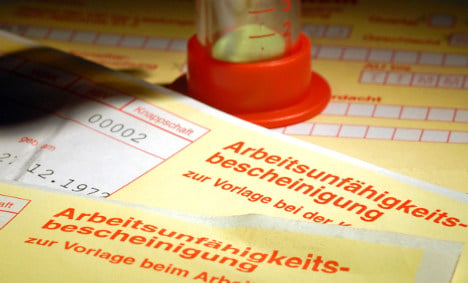From January to July employees missed an average of 3.58 percent of their regular working hours – an increase of 10 percent compared to the same period in 2009, daily Die Welt reported.
This averaged about four work days for the first half of the year according to the data collected from health insurers, the paper said.
In addition to seasonal influences, labour market experts attributed the increase in sick days to the improving economy, which has reduced worker fears of job loss in the case of illness.
The Health Ministry statistics also showed that women called in sick more often than men, missing 3.77 percent of working hours, compared to 3.41 percent missed by men.
Meanwhile most of the sick days were registered early in the work week – mainly on Mondays, the paper reported.




 Please whitelist us to continue reading.
Please whitelist us to continue reading.
Member comments